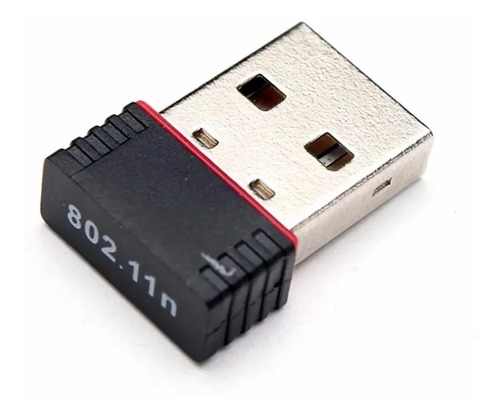I am using a cheap RTL8188eu dongle in AP mode with a BeagleBone Black running FreeBSd 13.0-RELEASE. I see you are from Brazil, and actually it is this one:
ROBOBUILDERS ME> Produtos a pronta entrega;> Todos os produtos com garantia e Nota Fiscal;> Envio em até 24 horas úteis após a confirmação da compra;> Suporte técnico especializado com engenheiro da...

produto.mercadolivre.com.br
Note: Don’t buy it before you read my final note.
Initially, I had also problems to achieve descent transfer rates, it always stuck at exactly 100 kByte/s and here read
‚exactly‘ exactly as
‚exactly‘, i.e. 100 ± 0.1 kByte/s. And this already was a strong hint that some rate adjustment told the chip to stay at this rate.
I stumbled across the contribution of
Nicola Mignotti here in the forum, and he found the switch:
Hi guys, I have this problem I can not sort out, I hope you can give me some ideas. The story is I made an Wireless Access point in FreeBSD-11.1 running in an BeagleBone Black. My wifi adapter is an Alfa AWUS036HN, recognized as "run0", 802.11g. [n not available] The thing works, the olny...

forums.freebsd.org
Load all necessary kernel modules, in order to make sure, that
wlan_amrr is really loaded and not dropped because of a missing dependency (this seemed to have happened to me at the beginning). So add to
/boot/loader.conf:
Code:
...
rtwn_load=YES
wlan_load=YES
wlan_amrr_load=YES
wlan_xauth_load=YES
wlan_wep_load=YES
wlan_tkip_load=YES
wlan_ccmp_load=YES
if_rtwn_usb_load=YES
Then in
/etc/rc.conf place something like the following:
Code:
wlans_rtwn0="wlan0"
create_args_wlan0="country BR regdomain ETSI roam:rate 54Mb/s"
54MB/s is the rate specifier for 11g-mode. My RTL8188eu may be operated in 11n-mode, and here I use the MCS rate specifier index 7. This equates to a single channel rate of 72 MBit/s. In order to achieve dual channel (40 MHz bw) rate of 144 MBit/s, I need to add the systctl flag
dev.rtwn.0.ht40=1 to
/boot/loader.conf. However, I was not able to check, whether this really gives a boost, since all my peers (Macs) operate in 20 MHz bw only.
Final note: I do not exactly recommend the above mentioned dongle. It becomes quite hot during operation, and because of the missing external antenna the access range is limited. The chipset itself seems to be well supported by FreeBSD 13. Perhaps, you want to look out for a dongle having an external antenna.


